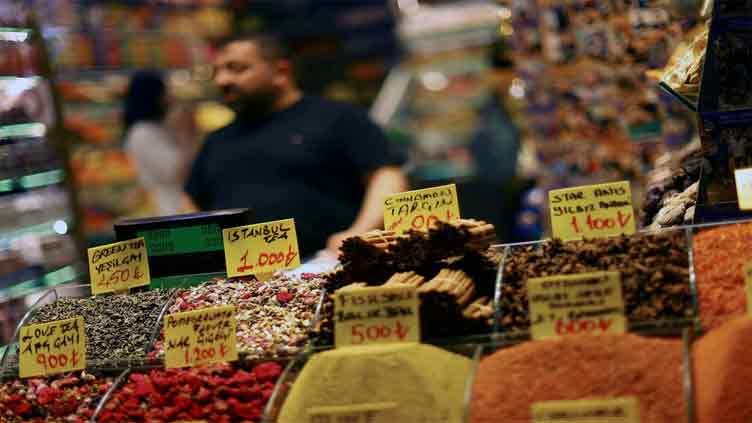Turkish inflation hits 75pc in expected peak before relief

Business
Interest rates currently stand at 50pc after 4,150 basis points hikes since June last year
ISTANBUL (Agencies/Web Desk) – Turkish annual consumer price inflation reached 75.45 per cent in May, a bit above expectations, according to official data on Monday, in what is expected to be the high watermark before a series of rate hikes and relative lira stability bring relief.
The consumer price index (CPI) rise was driven by strong advances in education, housing and restaurant prices last month.
Monthly inflation is also expected to ease after May, during which it was 3.37pc, according to the Turkish Statistical Institute, compared with 3.18pc in April. Annual inflation in April was 69.80pc.
In a Reuters poll, annual inflation was forecast to peak at 74.8pc in May, its highest level since November 2022, before dropping to 42.6pc by the end of 2024. Forecasts for month-on-month price rises ranged between 2.7pc and 3.3pc.
The Central Bank of the Republic of Turkiye (CBRT) has raised its policy rate by 4,150 basis points since June last year. It reversed years of monetary stimulus that was championed by President Tayyip Erdogan to boost growth, but which sent inflation soaring.
The bank last raised rates in March, by 500 basis points to 50pc, citing a worsening inflation outlook. It has since held steady and vowed to tighten more if there is "a significant and persistent deterioration" in the outlook.
The reversal has drawn foreign investor interest and helped boost the central bank's foreign reserves, which are at the highest level since December on a net basis.
International investors are ramping up exposure to Turkey, focusing on local bonds and credit default swaps as monetary policy normalisation becomes more deep-rooted, investors and analysts say.
However, there is a problem. The higher interest rates mean that the country would have to return not only the principle amounts but also ensure interest repayments according to the escalated borrowing costs.
Last month, the central bank nudged up its year-end inflation forecast to 38pc and said it would "do whatever it takes" to avoid any longer-term deterioration in the outlook.
In January and February, monthly inflation climbed 6.7pc and 4.53pc respectively, largely due to a big minimum wage hike and an array of new-year price updates. In March and April, the rise in inflation slowed to around 3.2pc.
The domestic producer price index was up 1.96pc month-on-month in May for an annual rise of 57.68pc, the data showed.


